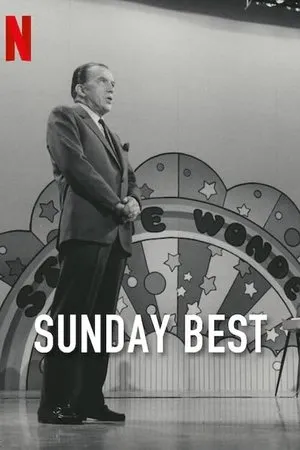Next to Her is a poignant exploration of the intricate bond between two sisters and the challenges they face when their insular world is disrupted by external forces. The film delves into themes of love, sacrifice, and the blurred lines between nurturing and control, painting a raw and honest portrait of a family grappling with complex emotional dependencies. Rachel, the older sister, has dedicated her life to caring for Gabby, her younger sister. Their relationship is the cornerstone of their existence, a symbiotic connection that defines their identities and dictates their daily routines. Rachel’s unwavering commitment to Gabby is both admirable and, at times, suffocating, blurring the boundaries between sisterly affection and a more profound, almost maternal, responsibility. The delicate balance of their lives is upended when a social worker intervenes, forcing Rachel to enroll Gabby in a day-care center. This seemingly innocuous act sets in motion a series of events that challenge the very foundation of their relationship. For the first time, Rachel is forced to share the upbringing of her sister with someone else, relinquishing a degree of control that she has always fiercely guarded. The void left by Gabby’s absence creates space for a new presence in Rachel’s life: a man named Zohar. His arrival further complicates the sisters’ dynamic, introducing romantic love and the potential for a different kind of intimacy into the equation. Rachel clings to Zohar’s affection as if it were a lifeline, a chance to experience a normal, fulfilling relationship outside of her role as Gabby’s caretaker. However, her deep-seated emotional dependencies and her inability to navigate the complexities of a romantic partnership threaten to unravel everything she holds dear. The film masterfully portrays the nuances of Rachel’s internal struggle, her desire for personal fulfillment clashing with her unwavering devotion to her sister. As Rachel becomes increasingly entangled with Zohar, the sisters’ relationship begins to fray. Jealousy, resentment, and a sense of betrayal simmer beneath the surface, threatening to shatter the fragile equilibrium they have painstakingly maintained. The film does not shy away from exploring the darker aspects of their connection, the moments of frustration, resentment, and even cruelty that inevitably arise when two individuals are so deeply intertwined. Next to Her is a thought-provoking examination of the complexities of family relationships, the sacrifices we make for those we love, and the challenges of maintaining our own identities in the face of overwhelming responsibility. It is a film that lingers in the mind long after the credits roll, prompting viewers to reflect on the nature of love, duty, and the delicate balance between selflessness and self-preservation. The performances are uniformly excellent, with the actors bringing a raw and authentic vulnerability to their roles. The film’s direction is subtle yet powerful, allowing the emotional nuances of the story to unfold naturally. The cinematography is equally impressive, capturing the intimacy and claustrophobia of the sisters’ world with a keen eye for detail. Next to Her is a must-see for anyone interested in exploring the complexities of human relationships and the challenges of navigating the often-turbulent waters of family life. It is a film that will resonate with audiences on a deep and emotional level, prompting reflection and discussion long after the final scene fades to black. Welovecinema.top highly recommends this movie.

Next to Her (2015)
In "Next to Her," Rachel, a 27-year-old woman, is the sole caregiver for her 24-year-old sister, Gabby. When a social worker discovers Rachel is leaving Gabby unattended while at work, she is compelled to enroll Gabby in a day-care center. This disrupts Rachel's routine and introduces a man named Zohar into her life, further straining the sisters' close bond. The film explores themes of love, sacrifice, and the blurred boundaries between nurturing and control within a complex family dynamic.










